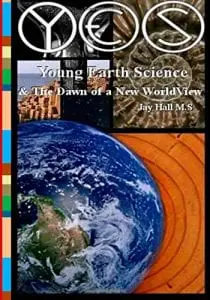Kenneth C. Davis wrote Don’t Know Much About History; it was on The New York Times bestseller list for 35 weeks. He also wrote Don’t Know Much About the Bible which is a very fascinating volume; however, it is often flawed in its general approach to Holy Writ. Davis’ sub-evangelical view of scriptural authority is unrelenting: “for centuries, scholars and thinkers… have been raising legitimate doubts about the Bible”1. Davis asks, “How strong is a faith that can’t stand up to a few honest questions”?2 I say we should question this Bible doubter. In a trial the accused is innocent until proven guilty. Are we at least open to the evidence for the Bible’s accuracy?
Davis claims that “the Bible is a book of faith, not history, biology, biography, science, or even philosophy”4. Says who? Is not faith founded on fact? And isn’t the Resurrection the greatest event of history? Until archaeological verification in the 1800’s, many scholars doubted the very existence of the Hittites mentioned in the Old Testament. The Bible predicts history! Daniel foretold that Rome would rule the world, but they did not capture Jerusalem until 63 B.C. (Dan. 2:40, 41). No scholar dates Daniel this late. Job said, “speak to the earth and it will teach you, or let the fish of the sea inform you” (Job 12:8). The Word tells us that the earth is spherical and that it hangs in space (Is. 40:22, Job 26:7). The number of stars are “countless,” yet Ptolemy in the second century said there were 1056 luminaries (Heb. 11:12). Solomon said, “Go to the ant, your sluggard; consider its ways and be wise!” (Pr. 6:6).
Davis claims that Genesis 1 and 2 contain two different versions of Creation Week4. Read both chapters carefully – there are no contradictions. The entire book of Genesis starts with the general and moves to the specific. Genesis starts out the cosmic origins, then presents Abraham, the twelve tribes of Israel and finally concentrates on Joseph. This is the same literary device in the first two chapters of the Bible. Genesis 2 does not mention the number of days, but this does not mean that it’s unimportant since the six days are even part of the Ten Commandments (Ex. 20:11).
Davis points out that the Hebrews may have drawn on earlier accounts of creation5. God may have directed Moses to use what was true from previous records. Using source material does not imply error (Lk. 1:1-4). The descendants of Adam and Eve spoke to Noah, and the descendants of Noah spoke to Abraham etc. In contrast to ancient myths, the Bible gives predictive prophecy and historical details that have been verified by archaeology.
According to Davis, “in eating from the tree, Adam and Eve acquire the capacity for rational and ethical judgments…”6. Man was made in the image of God. God is rational, so is humanity. “God made mankind upright” (Eccl. 7:29). Eve knew ethics. Adam and Eve were rational and ethical before they ate the fruit. Davis claims that Paradise was boring and devoid of science and art7. The first couple was given charge of taking care of the garden (Gen. 2:15). Science is not a sin. Adam the taxonomist named the animals (Gen. 2:20). Technology is not evil. Elisha performed a techno-miracle when he made the ax-head float (2 Kings 6:5,6).
Davis says, “the Scriptures contain no explanation for Cain’s wife”8. However, Genesis 5:4 plainly states that Adam had “other sons and daughters.” Clearly, Cain married his sister.
Davis rightly points out that, “almost every ancient culture has some sort of flood, or deluge, myth that shares much with the biblical Flood”9. Nevertheless, the Bible’s account has many important details: Noah’s Ark is seaworthy, but the Babylonian cube of the Gilgamesh epic is not. The date of the Flood is given and number of people in ark is specified in Genesis which shows its account to be superior to the mythical versions.
These global accounts are evidence for a universal flood, not a local one as Davis supports. “…All the high mountains under the entire heavens were covered” (Gen. 7:19). According to Davis, “…no one has discovered evidence of a flood that could have covered the whole earth”10. In his book The Nature of the Stratigraphical Record, Derek Ager concluded that, “Sedimentation in the past has often been very rapid indeed and very spasmodic. This may be called the phenomenon of the catastrophic nature of much of the stratigraphical record”11. Radioactive dating methods often pose problems: the volcanic explosion of Mount St. Helens in 1986 deposited rocks that have been dated from 340K to 2.8M years old using the potassium-argon method12.
Notes:
1) Davis, Kenneth C., Don’t Know Much About the Bible, William Morrow
& Co., 1998, p.xxiii.
2) ibid.
3) ibid.
4) Davis, pp. 42, 43.
5) ibid., p.45.
6) ibid., p.54.
7) ibid.
8) ibid., p.58.
9) ibid., p.62.
10) ibid., p.63.
11) Ager, Derek, The Nature of the Stratigraphical Record, Halsted Press,
1973, p.42 (all caps and italics removed).
YES – Young Earth Science and the Dawn of a New World View
What is Young Earth Science (YES)? How old is the world? Are radiometric dating methods reliable? Is Darwinism substantiated by scientific evidence and valid arguments? How does the Renaissance of Catastrophism relate to the age of the Earth? Has plate tectonics occurred more rapidly in the past? These and other queries are answered in this exciting new fully documented work. This widely illustrated book features support from history, philosophy, geology, biology and physics. Discover this creative and multidisciplinary approach which provides affirmation that this planet is thousands of years old and not billions . . . (continue reading)








